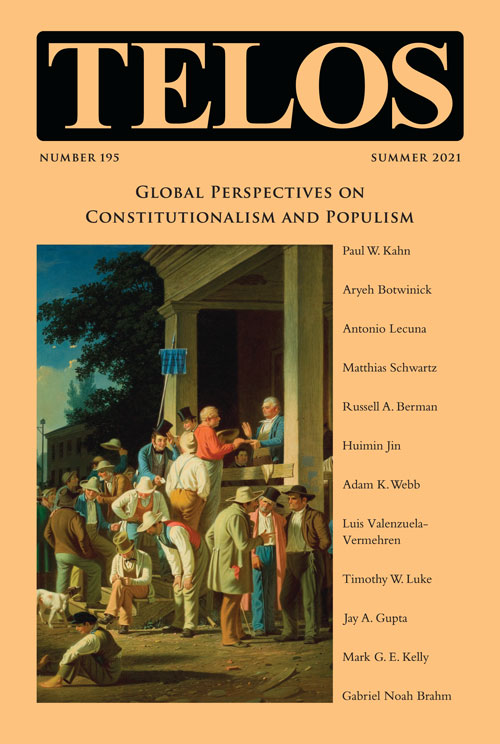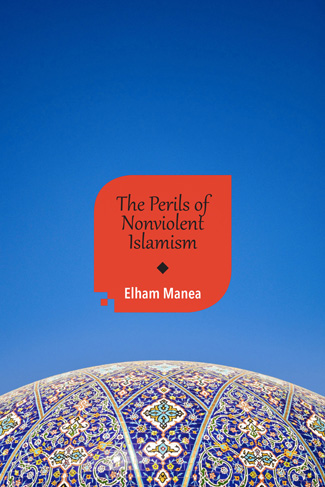In today’s episode of the Telos Press Podcast, David Pan talks with Stephen Muecke about his article “Belonging in Aboriginal Australia: A Political ‘Cosmography,'” from Telos 202 (Spring 2023). An excerpt of the article appears here. In their conversation they discuss how cosmography rather than ethnography allows for a focus on epistemological and ontological pluralism, and what such pluralism means for the essay’s cosmographic analysis; whether ontological pluralism is fundamentally incompatible with monotheistic religion and the institutions that have derived from it; how important for the essay’s analysis is institutional belonging, and whether the centering effect of such belonging could conflict with an ontological pluralism; how Native Title in the Australian legal system is grounded in the idea of genealogy, and whether this orientation undermines or contradict the forms of title and territorial sovereignty documented in Goolarabooloo practices; and the key differences between the Goolarabooloo practices and Yawuru nationalism. If your university has an online subscription to Telos, you can read the full article at the Telos Online website. For non-subscribers, learn how your university can begin a subscription to Telos at our library recommendation page. Print copies of Telos 202 are available for purchase in our online store.
|
In spite of the divided opinions concerning the Supreme Court’s ruling against affirmative action in college admissions, there is still solace in realizing that there is an underlying consensus that racial discrimination has no place in U.S. society. The primary dispute is about the means of achieving a society without racism. The majority opinion of the Court is that discriminating by race not only is unjust but reinforces the discrimination that it is meant to eliminate. Rather than overturning precedent, as the dissenters claim, the Court reaffirms the idea of the injustice of discrimination established in a series of Supreme Court judgments. Judge Roberts cites one such case that affirms: “‘Distinctions between citizens solely because of their ancestry are by their very nature odious to a free people whose institutions are founded upon the doctrine of equality.’ Rice v. Cayetano, 528 U. S. 495, 517 (2000) (quoting Hirabayashi v. United States, 320 U. S. 81, 100 (1943)). That principle cannot be overridden except in the most extraordinary case.” Evaluating people by their race is clearly contrary to the idea of equal treatment established in such previous cases, and the majority opinion uses this long-held principle as the guide for its judgment. When the Supreme Court rules in Students for Fair Admissions v. Harvard, it will surely declare that the use of racial preferences in higher education admissions violates the U.S. Constitution. There is some uncertainty about the precise shape its arguments will take, and their scope, but the basic outcome is clear enough. Here are seven reasons to welcome it from the standpoint of some traditional concerns of Telos. First, a ruling against race-based affirmative action will diminish the material interests at stake in racial identity politics. It will thereby undercut the racialism that lies at the ideological heart of the liberal managerial establishment. Individual good intentions notwithstanding, the Tories of the managerial class use this insidious set of principles and rhetorical moves to justify their power and to bludgeon the working- and private sector middle classes. Second, the ruling may enable colleges and universities to overcome the morally degrading culture of lies that the existence of racial preferences has spread throughout higher education, beginning in the elaborate charade that all applicants for admission or employment are judged by common criteria. It will help individual members of those communities to live in truth. After decades of contention, most observers agree that affirmative action in the form of racial preferences in college admissions will be declared unconstitutional by the U.S. Supreme Court. There are indeed few arguments left to support it. A supermajority of Americans opposes it, with 74 percent of Americans, including 58 percent of Blacks, indicating in the most recent Pew Research poll that race or ethnicity should not be a factor in college admissions. Racial preferences do not help the disadvantaged. As even a supporter of affirmative action writes: “Seventy-one percent of Harvard’s Black and Hispanic students come from wealthy backgrounds. A tiny fraction attended underperforming public high schools. First- and second-generation African immigrants, despite constituting only about 10 percent of the U.S. Black population, make up about 41 percent of all Black students in the Ivy League, and Black immigrants are wealthier and better educated than many native-born Black Americans.” As these statistics indicate, the racial categories do not correlate with disadvantaged status. They are even more problematic as a proxy for diversity. It is not clear why some markers of identity such as race and ethnicity should be considered significant for viewpoint diversity while others, such as religion, should not. Politically, university faculty have become much less diverse in terms of party affiliation over the last several decades of affirmative action policy, with a documented 11.5 to 1 ratio of Democrats to Republicans at leading universities in 2016. Moreover, because the defense of affirmative action has become a marker of anti-racism, the university support for the policy has suppressed opposing viewpoints by branding them as racist or sexist and not worthy of discussion, thus further reducing viewpoint diversity by encouraging pervasive self-censorship. Telos 195 (Summer 2021): Global Perspectives on Constitutionalism and Populism is now available for purchase in our store. Individual subscriptions to Telos are also available in both print and online formats.
To read more in depth from Telos, subscribe to the journal here. Writing in the Wall Street Journal, Tunku Varadarajan talks with Elham Manea about Switzerland’s recent decision to prohibit the wearing of full facial coverings in public, thereby restricting the burqa and the niqab. Manea’s new book The Perils of Nonviolent Islamism, which investigates the broader context of this decision in comprehensive detail, is now available from Telos Press in our online store for 20% off the list price. An excerpt from the article:
|
||||
|
Telos Press Publishing · PO Box 811 · Candor, NY 13743 · Phone: 212-228-6479 Privacy Policy · Data Protection Copyright © 2024 Telos Press Publishing · All Rights Reserved |
||||









